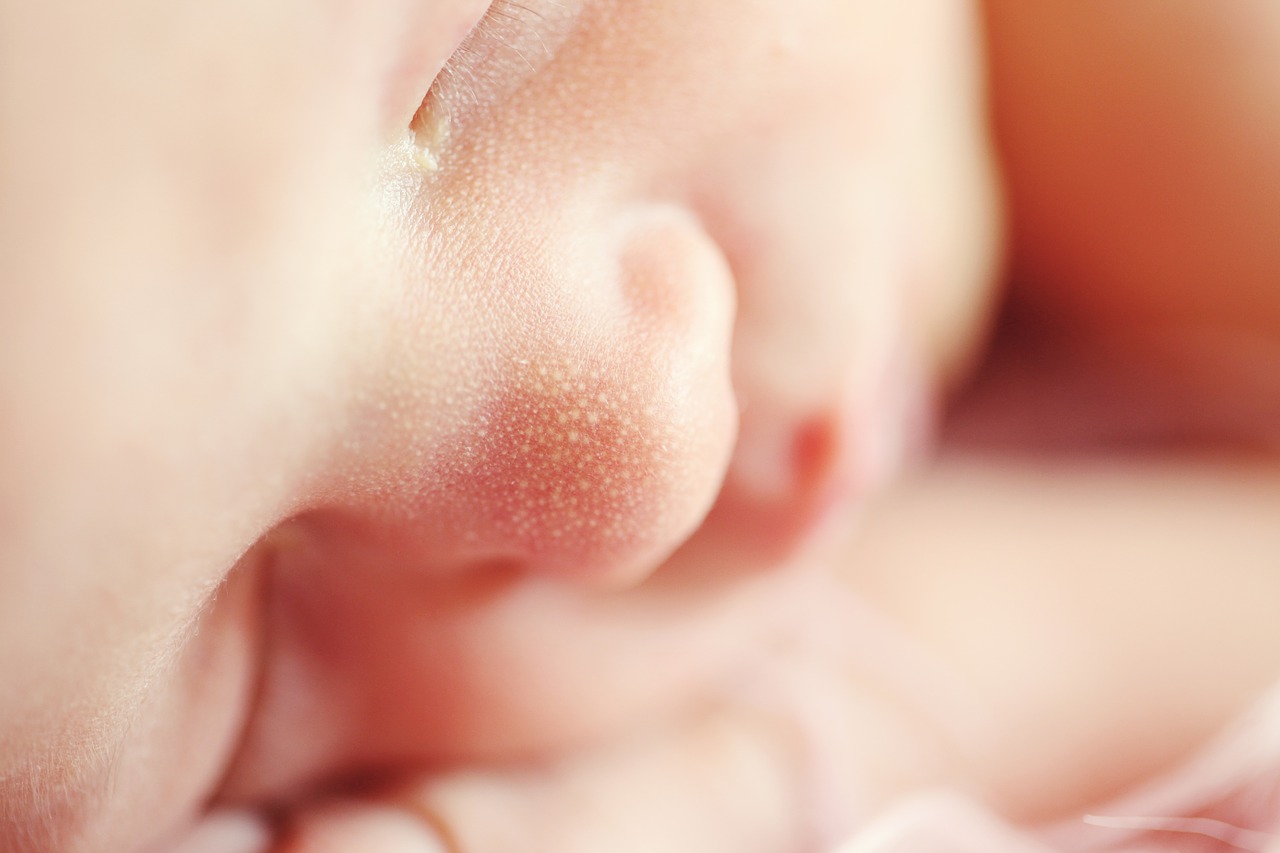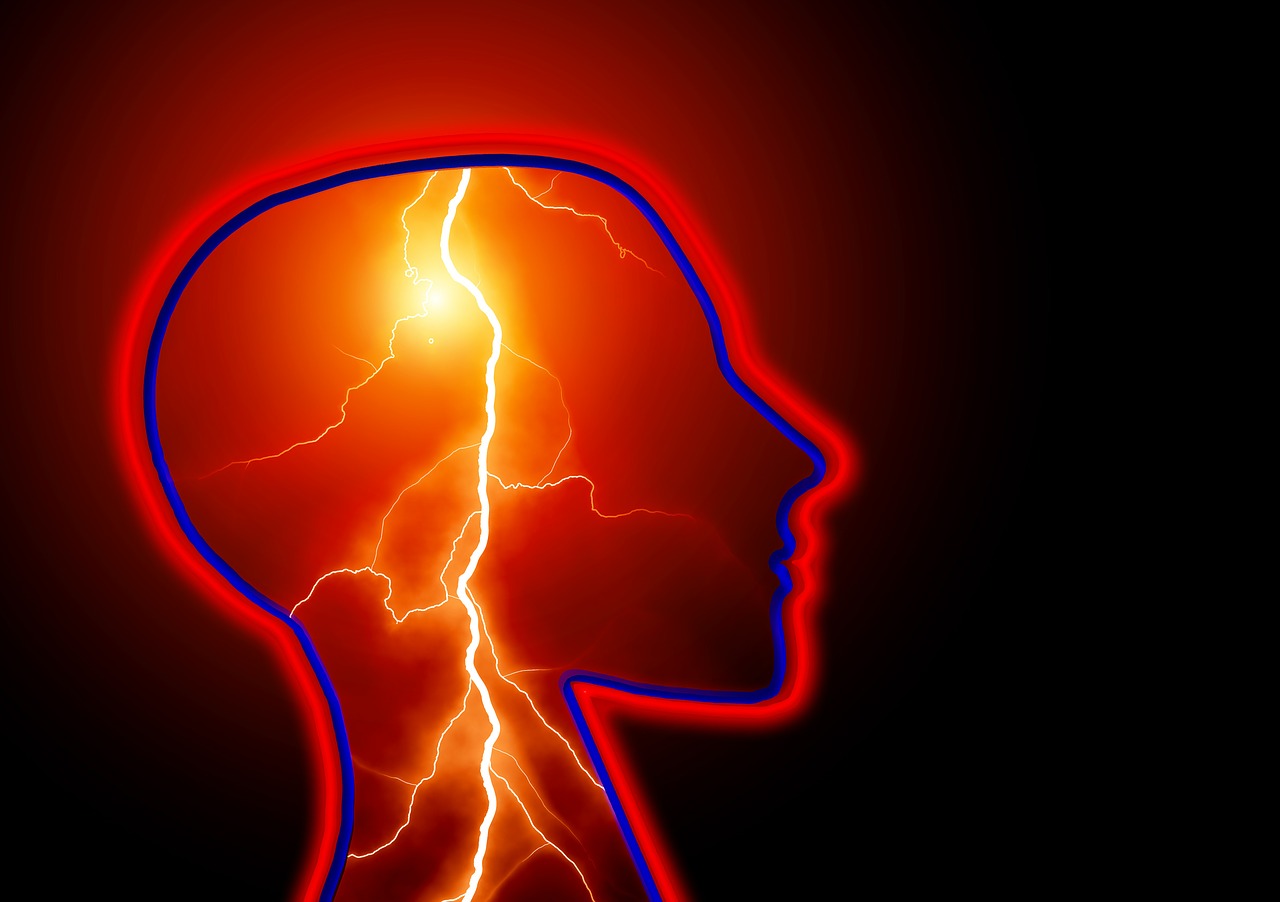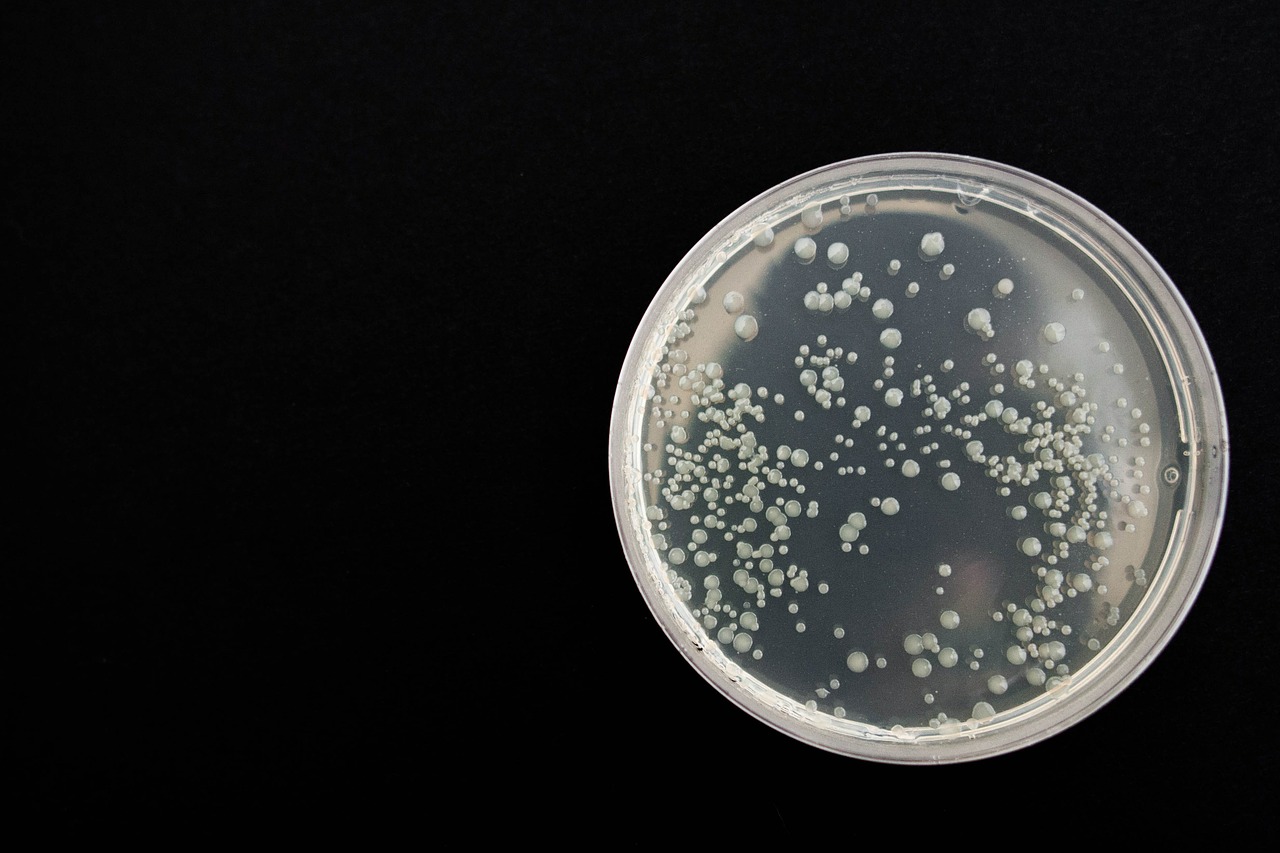Mental health
Article curated by Ginny Smith
Mental health problems will affect 1 in 4 of us every year, and yet little is known about underlying causes. A better understanding of the brain changes that occur, the influence of our genes and environmental triggers could help to improve the lives of sufferers, and perhaps even introduce preventative measures for those who are most at risk.

Conditions
Depression
Depression is the most common mental health problem. Its symptoms differ widely from person to person. Although most of us feel down from time to time, sufferers typically experience persistent low mood, lose enjoyment, struggle to motivate themselves to do day-to-day activities, and withdraw into themselves. Depression can also cause physical symptoms such as tiredness, loss of appetite, aches and pains, and problems sleeping. Despite its prevalence, we don't know why some people suffer from depression and others don't, but a combination of genetics and circumstances could trigger the illness[1]. Some think an imbalance of neurotransmitters (chemicals that help communications in the brain) may be responsible, but it's not clear which neurotransmitters are involved, if so, and where in the brain[2].

The Avon Longitudinal Study of Parents and Children looked at 3,176 father and child pairs, where they found paternal postnatal depression correlated with a small but significant increased risk of daughters (but not sons!) developing depression at age 18.


 3
3
Anxiety
Anxiety, which can be specific or general, is another common mental condition, and is characterised as a stress response in the absence of external stressors. It can be mild or severe, and may include debilitating anxiety attacks (or panic attacks). Evidence suggests it is also both physiological and psychological, and may respond well to physical treatments sich as exercise or puzzle-solving.

PTSD
Stress also plays a role in PTSD: post-traumatic stress disorder, a condition characterised by persistent flashbacks, hypervigilance, anxiety and depression following a highly stressful event. Sufferers have an over-active adrenaline response, causing excessive ‘fight or flight’ responses and leading to long term changes in the brain. We don’t know why some people who suffer a traumatic event suffer from PTSD while many others don’t. There seems to be a genetic component, but this only explains part of the variability. Having a smaller than average hippocampus (or core memory store) has also been linked with vulnerability to developing PTSD. It is most common amongst soldiers and women who have given birth.

 2
2Psychosomatic illnesses
Large numbers of people experience symptoms of illness that have no identified physical explanation, and many of these may be psychosomatic, a mental rather than physical health problem. However, knowing whether they are or whether we've just not discovered that illness yet is very difficult. Symptoms are typically functional neurological in nature, such as immobility, sickness and loss of proper internal functioning, and may come about because of disruptions to the messages sent between body and brain.

Maternal mental health
Many women’s conditions such as complicated births are treated physically, but the mental aspect is under-researched, including birth trauma, postnatal depression, and grief following a miscarriage.

 3
3
Postnatal depression is the most common maternal mental health condition, affecting ~1 in 10 mothers and lasting for weeks, months, or longer following a birth. We don’t know what causes postnatal depression, although it’s associated with hormonal changes, such as a drop in one hormone called allopregnanolone. Scientists now think that a range of physical, emotional, genetic, and social factors contribute[3][4][5]. Some of these risk factors include previous mental illness (including postnatal depression), physical or psychological trauma or abuse, stress, complications during childbirth, and use of drugs, nicotine or other medications; formula feeding, low self-esteem, sleep deprivation and painful pre-menstrual symptoms may also cause or worsen the condition, and researchers have also found that postnatal depression is more common in women with low socioeconomic status or less support from friends and family.


 3
3Making the causes even more mysterious is the fact that men also experience postnatal depression, although a little less often. In 2016, a study of the literature concluded that postnatal depression occurs in 8% of men, although it could be higher, since the condition is underdiagnosed and screening tools for detecting it (the “Edinburgh scale”) are aimed at women[6][7][8].


 3
3


 2
2Babies born to post- and perinatally depressed women also face increased health risks including low birth weight, poor growth, reduced activity, infections, difficulties breastfeeding, and even miscarriage[9]. Scientists are unsure whether miscarriage is linked to depression or depression medication, although one study suggests rates are higher in women not taking medication than ones who are[10].


 2
2
A Swedish study of 366,499 births found that when fathers develop depression alongside a pregnancy, this also correlates with higher than usual rates of preterm birth (but we don’t know the order of causality)[11].


 3
3Birth trauma, or maternal PTSD, occurs after ~4% of births, triggered by extreme conditions such as slow/fast labour, over- or under-medication or gruelling interventions, and psychological ordeals, such as feeling lost control or dignity, not being heard, or having interventions withiout consent[12][13][14]. Birth trauma is under-reported, and many who report it won’t be treated or will be misdiagnosed with and treated for postnatal depression.


 3
3It's also possible for men to experience birth trauma if they were present at the birth.


 2
2Postnatal (puerperal) psychosis is an uncommon but severe condition, which can include low mood – or manic mood – delusions, hallucinations, and out-of-character behaviour. Trauma or a history of other mental illnesses are risk indicators.


 3
3
Postpartum bipolar disorder, the least well-known postpartum mental health disorder, is characterised by mood episodes of mania, hypomania or depression that interfere with everyday life and performing ordinary tasks.
Learn more about /pregnancy.


 3
3Pseudocyesis
Pseudocyesis, or phantom pregnancy, is a type of delusion seen in both men and women that correlates with other psychiatric disorders including psychosis, mood disorders, and organic brain disorder[15][16][17][18]. In women, it can correlate with menopause. We don't know what causes them.

 3
3ASD
Autism spectrum disorders (ASD)[19] are so called because it's argued that everyone falls somewhere on the spectrum. Those at the extreme end, however, find it affects their ability to function, especially when it comes to communicaton. Autism can also come with talents such as ‘systemizing’[20], e.g. encoding memories or performing calculations. Those with mild autism benefit most from these. The cause of autism remains a mystery, and indeed there may not be one cause. Some have found that other diseases, such as tuberous sclerosis, can trigger it[21]. Identical twin studies have shown that it is genetically linked, but there is also likely to be an environmental factor, as there is only a "chance" of both having it[22]. We know that pre-natal environment is also important because mothers who are infected with a virus during pregnancy, and those who smoke, are more likely to have children with autism – but it isn't clear how these risk factors change the infant’s brain. The brain bank for autism is collecting brains to help explore this topic further. Research is needed to understand the causes and biological basis of autism, but critical research is hindered by the scarcity of human brain tissue.Learn more about Autism.


 3
3Understanding mental health
There are many questions when it comes to understanding mental health, and scientists are working hard to get more information about it.
Animals
One way we can understand more about many conditions is by looking at animals... but how can we diagnose mental health conditions in animals? Experts think behavioural symptoms such as self-neglect (such as not eating), loss of interest in pleasurable activities, self-harm and changes in sleep patterns can signify depression in animals. Anecdotal descriptions even tell of animals taking decisions that abruptly end their lives.

One theory about depression is that it's a form of arrested development (or detachment from the world), and that arresting development (such as through domestication of animals or the establishment of society) can cause it – by keeping us in a childish play state. This theory could be a step towards understanding depression in humans and animals and help towards seeking treatment for it.


Brain structure
Initial findings suggest there could be structural indicators in the brain for birth trauma, and preventative screening approach could substantially reduce the risk. The Human Connectome Project is working to map out the complete human brain to understand more about how neural networks function and how they differ between individuals, the healthy, and the sick. Researchers have managed to map out many of the pathways in the brains of simpler animals like fruit flies, but we are still a way off understanding how the neurons in a human brain are connected.
Structural changes in the brains of sufferers can be useful for indicating how conditions came about. However, the brain is plastic and able to change over time, making identifying differences difficult. On the other hand, plasticity means that people who have had strokes or traumatic brain injuries can relearn lost abilities using intact parts of their brains. This corresponds to the brain finding new pathways which avoid the old, damaged areas. Through understanding plasticity, there's a chance we could harness it to help people with brain damage or mental illness.
Learn more about Rewiring the Brain.


 3
3
Disease
Evidence suggest diseases not only damage your body, but might affect your personality and mental health. Studies have cited how the flu jab (which contains disabled flu viruses) drives people to socialise, and sufferers of STIs like AIDS and syphilis feel an increased sexual urge at certain stages of infection[23][24]. This makes evolutionary sense – if diseases can affect our brain, surely they’d want to persuade us to do the things most likely to increase infection and spread of the disease? Toxoplasma gondii is a parasitic protozoan that causes risk-taking behaviours in rats, increasing their chances of being eaten by cats, and may also affect people. Tuberous sclerosis, an illness that produces tumours throughout the body and brain, has been shown to occasionally trigger autism.

 2
2
Porphyria, the "vampire disease" is also linked to mental health – a malfunction in the production of haem proteins leading to the build up of porphyrins in the blood – which leads to a variety of symptoms including sensitivity to sunlight and poor mental health. In 20% of people, it has been linked to a genetic mutation; scientists are still exploring environmental triggers for the other 80%, and its not clear whether mental health deterioration is part of the disease or caused by it.


 3
3Creativity
For some reason, creative professions are over-represented when surveying people with mental illness, particularly schizophrenia and bipolar disorder. It isn’t clear whether this is a direct link, or whether a third factor is involved... perhaps the stress of trying to make a living as an artist! One theory is that periods of mania or psychosis, so long as they aren’t severe enough to completely disable the person, can open their minds to new ideas, and the formation of new links and connections, so helping the creative process. Or it could be that the extreme emotions felt by sufferers lend themselves very well to being the basis of writing or art. However it could equally be that people with mental illness are simply drawn to creative professions as a way to express themselves, or because they struggle to work in more structured jobs. Some individuals unleash their creativity for the first time following brain damage, suddenly developing new skills such as composing or drawing. These new abilities have even been seen as a result of progressing dementia. One theory is that certain brain areas actually but the brakes on creativity, so damage to these areas can release it.
Psychedelics
In order to better understand how the brain works – and breaks – some scientists have experimented with psychedelics. There is a suggestion that they may unlock new areas of the brain. But is the human brain on psychedelics actually comparable to the human brain without them? Injections of psychedelics are still used now under controlled conditions to see how they affect abilities such as maths and drawing and they change brains on electroencephalograms (ECGs). Researchers suggest that this research might lead to treatments for anxiety and depression.

Treatments
Antidepressants
Most antidepressants work by changing the levels of neurotransmitters in the brain. These molecules carry signals between neurons, and are thought to be involved in regulating mood. Tricyclic antidepressants (TCAs) and selective serotonin reuptake inhibitors (SSRIs) are commonly prescribed and seem to be effective after 2-3 weeks. However the brain is highly complicated, and changing neurotransmitter levels in one area can have knock on effects on the whole brain, even reducing the levels of the same neurotransmitter in other areas. Antidepressants have also been shown to increase the number of new neurons produced in certain areas of a rat's brain, which could suggest a whole new mechanism for their efficacy. It isn’t known which of these mechanisms explains antidepressant’s effectiveness, or why they only work in some people.
Alternatives to antidepressants that are being explored include hormone therapies and oestradiol patches for postnatal depression. The newest drug is brexanolone, a synthetic version of the allopregnanolone hormone. Trials suggest it’s effective, but it’s injected, and, when administered, can lead to unconsciousness. Cognitive behavioural therapy (CBT), guided self-help, interpersonal therapy, problem-solving therapy and psychodynamic psychotherapy are popular non-drug treatments for depression and other mental health conditions. Others have tried acupuncture, electroconvulsive therapy (ECT), or transcranial magnetic stimulation (rTMS). Evidence is inconclusive. Lifestyle changes include bright light exposure, taking omega-3 fatty acid or vitamin D supplements, avoiding caffeine, and reducing stress.


 3
3One possible future treatment for PTSD is propranolol, which is used to treat high blood pressure. When a memory is recalled, it enters a ‘labile’ state, where it can be changed. The idea is that by administering propranolol during recall, the fear-related heart rate increase is reduced, and the memory is stored again without the fear component. However, so far most of the studies in this area have been done in mice, and there is limited evidence that it would work in humans.


 2
2
Exercise and outdoors
Exercise and, in some studies, the breathing that accompanies yoga have been shown to reduce depression. Other studies suggest that cortisol, an indicator of stress, can go down and immunoglobulin A, an indicator of immune function, can go up, and that the physical exercise could reduce physical symptoms of mental health conditions. However, the benefits and risks are inconsistently reported and the research tends to be performed by people biased towards exercise, mindfulness, meditation, and yoga, and performed on very small groups of people.

 2
2Linked to this are other "calming" exercises, such as walking outdoors, that have been shown to benefit mental health. Research has shown improved mood, cognitive function, self-esteem, reduction in blood pressure, positive impacts on immune function, and that people spend 20% more time talking when outdoors. This is a kind of biophilia – the idea that being amongst nature makes you happier and healthier. Scientists don’t know why this is though, or which sensory perceptions dominate the effect.


 2
2
One finding is that listening to bird calls can help. The idea is sufficiently established that Alder Hey Children’s Hospital in Liverpool play birdsong in their corridors, as does an airport lounge in Amsterdam! It’s even been applied as a form of dementia treatment. This kind of treatment is known as ecotherapy. New work led by the National Trust aims to explore how human brains are affected by birdsong, and potentially shed light on this.


 3
3.jpg)
Diet
Porphyria is typically treated by dietary control, but does it work? A study of more than 1.5 million healthy adults has linked the Mediterranean diet with reduced incidences of various diseases, including depression[25].

Another study from the University of Maryland found those that had eaten fermented foods in the past month experienced reduced social anxiety (RSA), and those with neurotic personalities showed the strongest positive correlation to this trend. This may be linked to the microbiome, which is suspected to play a role in mental health.

The colonies of bacteria living in our gut can influence our physical health, and even our mood[26]. These bacteria are referred to as our ‘microbiome’ and have been linked to everything from depression to cancer. This is because bacteria may produce toxic chemicals or ones that mimic our hormones and neurotransmitters, effectively regulating the what circulates in the blood and brain. Some gut bacteria even directly stimulate nerves sending signals to the brain via the vagus nerve. It's not clear how this evolved, how it helps the bacteria, or how it could help us master mental health – but it's certainly possible!

 2
2

Learn more about Impact of antibiotics on our microbiome.


 2
2This article was written by the Things We Don’t Know editorial team, with contributions from Gavin Hub, Ginny Smith, Cait Percy, Johanna Blee, Rowena Fletcher-Wood, and Joshua Fleming.
This article was first published on 2015-08-27 and was last updated on 2020-06-29.
References
why don’t all references have links?
[1] Lopizzo, N., et al., (2015) Environment Interaction in Major Depression: Focus on Experience-Dependent Biological Systems. Frontiers in Psychiatry 6. doi: 10.3389/fpsyt.2015.00068.
[2] Werner, F., Coveñas, R., (2010) Classical Neurotransmitters and Neuropeptides Involved in Major Depression: a Review International Journal of Neuroscience 120(7):455-470. doi: 10.3109/00207454.2010.483651.
[3] Stewart, D,E., Vigod, S,N., (2019) Postpartum Depression: Pathophysiology, Treatment, and Emerging Therapeutics Annual Review of Medicine 70(1):183-196. doi: 10.1146/annurev-med-041217-011106.
[4] Howell, E,A., Mora, P., Leventhal, H., (2006) Correlates of Early Postpartum Depressive Symptoms Maternal and Child Health Journal 10(2):149-157. doi: 10.1007/s10995-005-0048-9.
[5] Grace, S,L., Evindar, A., Stewart, D,E., (2003) The effect of postpartum depression on child cognitive development and behavior: A review and critical analysis of the literature Archives of Women's Mental Health 6(4):263-274. doi: 10.1007/s00737-003-0024-6.
[6] Cameron, E,E., Sedov, I,D., Tomfohr-Madsen, L,M., (2016) Prevalence of paternal depression in pregnancy and the postpartum: An updated meta-analysis Journal of Affective Disorders 206:189-203. doi: 10.1016/j.jad.2016.07.044.
[7] Wisner, K,L., Parry, B,L., Piontek, C,M., (2002) Postpartum Depression New England Journal of Medicine 347(3):194-199. doi: 10.1056/NEJMcp011542.
[8] Cox, J,L., Holden, J,M., Sagovsky, R., (1987) Detection of Postnatal Depression British Journal of Psychiatry 150(6):782-786. doi: 10.1192/bjp.150.6.782.
[9] Chung, E,K., et al., (2004) Maternal Depressive Symptoms and Infant Health Practices Among Low-Income Women PEDIATRICS 113(6):e523-e529. doi: 10.1542/peds.113.6.e523.
[10] Johansen, R,L,R., et al., (2015) Maternal Use of Selective Serotonin Reuptake Inhibitors and Risk of Miscarriage - Assessing Potential Biases Paediatric and Perinatal Epidemiology 29(1):72-81. doi: 10.1111/ppe.12160.
[11] Liu, C., et al., (2016) Prenatal parental depression and preterm birth: a national cohort study BJOG: An International Journal of Obstetrics & Gynaecology 123(12):1973-1982. doi: 10.1111/1471-0528.13891.
[12] Waldenström, U., Schytt, E., (2009) A longitudinal study of women’s memory of labour pain-from 2 months to 5 years after the birth BJOG: An International Journal of Obstetrics & Gynaecology 116(4):577-583. doi: 10.1111/j.1471-0528.2008.02020.x.
[13] Yildiz, P,D., Ayers, S., Phillips, L., (2017) The prevalence of posttraumatic stress disorder in pregnancy and after birth: A systematic review and meta-analysis Journal of Affective Disorders 208:634-645. doi: 10.1016/j.jad.2016.10.009.
[14] Niven, C,A., Murphy‐Black, T., (2001) Memory for Labor Pain: A Review of the Literature Birth 27(4):244-253. doi: 10.1046/j.1523-536x.2000.00244.x.
[15] Chatterjee, Seshadri Sekhar, et al. Delusion of pregnancy and other pregnancy-mimicking conditions: Dissecting through differential diagnosis. Medical Journal of Dr. DY Patil University 7.3 (2014): 369. doi: 10.4103/0975-2870.128986.
[16] Manjunatha, Narayana, and Sahoo Saddichha. Delusion of pregnancy associated with antipsychotic induced metabolic syndrome. The World Journal of Biological Psychiatry 10.4-2 (2009): 669-670. doi: 10.1080/15622970802505800.
[17] Adityanjee, A. M. Delusion of pregnancy in males: a case report and literature review. Psychopathology 28.6 (1995): 307-311. doi: 10.1159/000284942.
[18] Yadav, Tarun, Yatan Pal Singh Balhara, and Dinesh Kumar Kataria. Pseudocyesis versus delusion of pregnancy: differential diagnoses to be kept in mind. Indian journal of psychological medicine 34.1 (2012): 82. doi: 10.4103/0253-7176.96167.
[19] Lai, M., et al., (2013) Subgrouping the Autism Spectrum: Reflections on DSM-5. PLoS Biology 11(4):e1001544. doi: 10.1371/journal.pbio.1001544.
[20] Baron-Cohen, S., et al., (2009) Talent in autism: hyper-systemizing, hyper-attention to detail and sensory hypersensitivity. Philosophical Transactions of the Royal Society B: Biological Sciences 364(1522):1377-1383. doi: 10.1098/rstb.2008.0337.
[21] Curatolo, P., et al., (2004) Autism in tuberous sclerosis. European Journal of Paediatric Neurology 8(6):327-332. doi: 10.1016/j.ejpn.2004.08.005.
[22] Hallmayer, J., (2011) Genetic Heritability and Shared Environmental Factors Among Twin Pairs With Autism. Archives of General Psychiatry 68(11):1095. doi: 10.1001/archgenpsychiatry.2011.76.
[23] Reiber, C., et al., (2010) Change in Human Social Behavior in Response to a Common Vaccine Annals of Epidemiology 20(10):729-733. doi: 10.1016/j.annepidem.2010.06.014.
[24] Torrey, E,F., Yolken, R,H., (2003) and Schizophrenia Emerging Infectious Diseases 9(11):1375-1380. doi: 10.3201/eid0911.030143.
[25] Lassale, C., et al., (2019) Healthy dietary indices and risk of depressive outcomes: a systematic review and meta-analysis of observational studies Molecular Psychiatry 24(7):965-986. doi: 10.1038/s41380-018-0237-8.
[26] Kaplan, B,J., et al., (2015) The Emerging Field of Nutritional Mental Health. Clinical Psychological Science 3(6):964-980. doi: 10.1177/2167702614555413.
Blog posts about mental health






Recent mental health News
Get customised news updates on your homepage by subscribing to articles














